Læs også
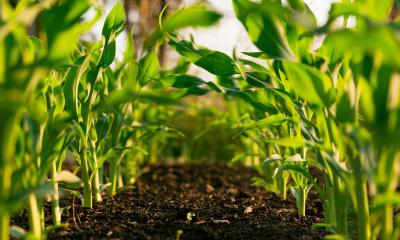
Det går langsomt med at reducere CO2-udledningerne fra det europæiske landbrug. I dette brief ser vi på, hvad det kan komme til at betyde for den kommende Kommission.
On February 21, 2024, Think Tank EUROPA and the Delegation of Flanders to the Nordic Countries hosted a high-level conference on the Future of Agriculture in the EU.
Amidst growing farmers protests across Europe, the conference to stock of the state of agri-food policy in the EU after a politically turbulent year and explored what this could mean for the next Commission.
The panelists agreed on the need to involve farmers more directly in policymaking beyond traditional agricultural interest organizations. The panelists highlighted an important gap in existing formats of dialogue while urging policymakers to develop new ways to include farmers. Several panelists underlined that there is often not a clear path for individual farmers to make their voices heard in the policy-making processes.
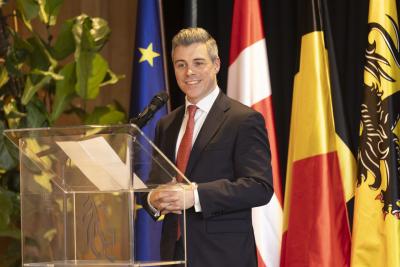

According to the panelists, more needs to be done to highlight the significant role of intermediaries in agri-food supply chains, in particular among processing industries and retailers. The panelists underlined that both farmers and consumers are being squeezed, albeit at different ends of the foods chain, by respectively too low and too high food prices. This should prompt a broader examination of how profits are distributed, including an identification of inefficiencies across agri-food supply chains. A first step in tackling this challenge may be to improve transparency across supply chains.
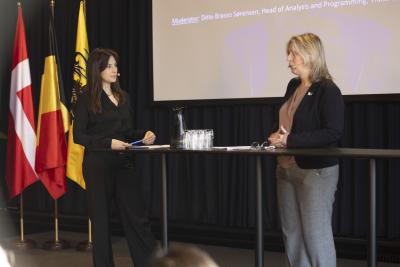

During the discussion, some panelists underscored the importance of focusing on strategies to reduce food waste at every stage of the supply chain. Finding ways to minimize food waste will be essential in a world characterized by rising food insecurity and the challenge of feeding more people on a smaller amount of land. In 2019, 20% of food was wasted in Europe, with the biggest waste occurring among consumers (approx. 40%), followed by primary production (25%) and processers and retailers (approx. 24%).[1] In order words, focusing attention on food waste will get us closer to increasing the amount of food available, without a similar rise in the area used for food production.
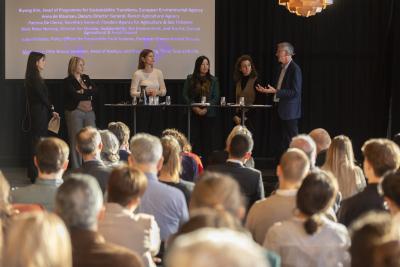

Aside from food waste, many panelists highlighted the importance of making healthier food choices as a means of tackling environmental and agricultural challenges. Policy makers have significant influence in this area through laws governing subsidies and advertising for unhealthy foods. We need to change our policy frameworks and economic incentives, in a way that incentivizes the production and consumption of nutritious, environmentally friendly foods. Agricultural policies need to be aligned with broader public health and environmental objectives. In doing this, panelists underscored of taking an evidence-based approach to fostering positive behavioral changes.
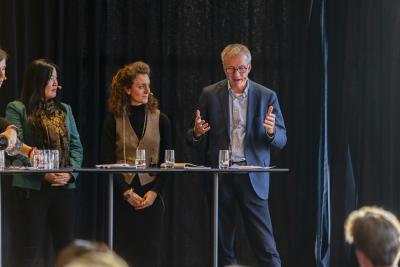

Panelists highlighted that the Commission is being held back by limited policy coordination across the Directorate-Generals responsible for agri-food policies. This lack of coordination is holding back policy making and resulting in policy that too often is difficult to implement on the ground, in part because it has not sufficiently involved the relevant stakeholders. Looking ahead to the next Commission, work needs to be done to ensure that relevant stakeholders are involved across the policymaking process so as to enhance regulatory quality, coherence, and implementation in the agri-food policy space.
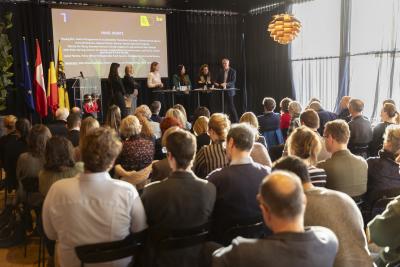

PROGRAMME
INTRODUCTION: By Dries Willems, General Representative of Flanders in the Nordic Countries, The Embassy of Belgium in Denmark
MODERATED CONVERSATION: The Belgian Presidency - priorities, perspectives, and take-aways from the Ghent symposium on the future of agriculture in the EU.
With Patricia De Clercq, Secretary General, Flanders Department of Agriculture and Sea Fisheries
PANEL DEBATE and Q&A: The future of agriculture in the EU -- assessing the state of agri-food policy and what could lie ahead for the next Commission.
Riyong Kim, Head of Programme for Sustainability Transitions, European Environmental Agency
Anna de Klauman, Deputy Director General, Danish Agricultural Agency
Patricia De Clercq, Secretary General, Flemish Agency for Agriculture & Fisheries
Niels Peter Nørring, Director for Climate, Sustainability, the Environment, and the EU, Danish Agricultural and Food Council
Isabel Paliotta, Policy Officer for Sustainable Food Systems, European Environmental Bureau
CONCLUDING REMARKS: With Dries Willems, General Representative of Flanders in the Nordic Countries, The Embassy of Belgium in Denmark
Moderator: Ditte Brasso Sørensen, Senior Analyst and Head of Analysis and Programming, Think Tank EUROPA.
Tænketanken EUROPA indtager ikke holdninger som organisation. Denne tekst repræsenterer alene – som alle udgivelser fra Tænketanken EUROPA – forfatterens/forfatternes betragtninger.